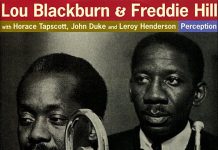I’ve been teaching Latin to my homeschooled son and he’s been helping me cut wood. Quid pro quo. Actually I give him more than a quid. It’s surprising how little you can get for one of those these days. Almost as worthless as Latin.
Having the language in mind proved unexpectedly relevant this week. I was talking to someone in town who suddenly asked what I did for a living. It beats being asked how you’re enjoying your retirement. I explained that one of my few remaining paid engagements was reviewing books and records.
“Doesn’t it bother you, having to be nasty to other people’s work?” I said that I avoided nastiness as much as I could, far preferring to praise than to condemn, but foolishly added that the language of dispraise was far more interesting than the language of praise and that most writers enjoyed a bit of invective, in the same way that a good argument often does more for a relationship than endless, routine “I love you”s.
The Latin came in handy because the longest word in classical Latin is the splendid Subductisupercilicarptor, which appears in Aulus Gellius’s Attic Nights and means “an exceptionally critical person”. Is that what we’re fated to be, or how we’re bound to be seen? In the age of advertorial copy and “promoted content”, and at a time when there’s zero tolerance toward a slightly raised voice, even in the face of blatant incompetence, it’s hard to be negative without calling down all kinds of obloquy.
The late Richard Cook always advised young reviewers not to vent their spleen on the work of 21-year-old triers who might well be crushed by a negative review in a respected magazine. It’s a fair principle but it all too easily stretches into the injunction, much beloved of mothers and grandmothers, not to say anything about a person unless you are able to say something positive.
The distinction, of course, is that comment about the person is fundamentally different to comment about the work. The former is outlawed by the many basic conventions that allow us to live together without bellum omnium contra omnes, the war of each against all that Thomas Hobbes warned against. (And if Latin tags are a bit pretentious and old hat, you can’t deny the relevance of Thomas Hobbes to our present fix.) The latter is fair game, frankly. If you publish your book or release your record, you are knowingly exposing it to opinion and opinion is sometimes going to be negative, even hostile.
I have had a number of exchanges on this subject over the year. A senior British jazz musician once claimed that a negative review had cost him thousands in lost sales and bookings. Another of the same generation wrote in green ink to say that I had “never” liked his work and had set out to damage his career. This on the basis of a single disappointed review, the disappointment subsequent to many positive reviews and generous comments, all forgotten or cancelled by a single thumbsdown.
In an age in which quality control is often down to the artist himself and not to an A&R man, producer or label executive, often the first person in a position to register a negative or corrective thought is the critic
Very recently, a young musician (in the age range that Richard spoke about) sent his first CD and asked my opinion. I wrote back and thanked him from the disc, but without comment. He pressed for a comment. I said I didn’t think he wanted to hear my views. He said he did. I insisted he didn’t. He said he really, really did. So I told him that I thought his record was rather thin, the “originals” generic and predictable and the standards done with little knowledge or understanding of a substantial literature. I said that this was merely a personal opinion and that others might well praise the record to the skies. Silence.
There’s been some debate in recent times over how Jazz Journal reviewers rate the records they’re sent. Too many four-star ratings is a legitimate complaint and one of which we’re all guilty. The corollary is that we don’t double-tap enough records with a stellar pair. They can’t all be terrific, can they?
In an age in which quality control is often down to the artist himself and not to an A&R man, producer or label executive, often the first person in a position to register a negative or corrective thought is the critic. If the critic is handcuffed by fear of causing offence or, at worst, of the withdrawal of advertising revenue – and that has happened to me, or rather to a sister magazine, twice – then the whole enterprise becomes meaningless.
Kingsley Amis used to say that one should never write and thank a reviewer for a good notice, because it implied a favour done to the person rather than justice done to the work. The opposite is also the case. No one should complain about a negative review if it is sincerely directed to the work rather than ad hominem. Behind it lies the unspoken wish that the work might be, or have been, better. I wrote again to that young musician to say, sincerely, that I looked forward to hearing his next record, confident that it would mark a step forward in his career. The record duly appeared – I had to buy it this time – and yes, it marked a significant evolution, both in the writing and playing. I wrote and said so, but the silence has been unbroken.
Being more negative doesn’t sound like a worthy resolution. Being honestly critical when it seems called for, does. It’s not an easy resolution to keep. The false front of positivity will be hard to resist and there’s a danger that anyone who breaks ranks and dares to criticise will seem like the lone drunk swinging air punches in the car park, or the sandwich-board man prophesying doom. A fear of causing offence unmans all of us, and the word is chosen advisedly, because I think women tend to be more honest in their opinions. Time to toughen up.









